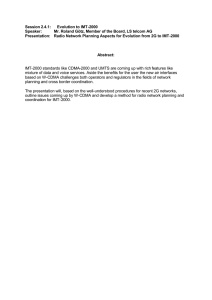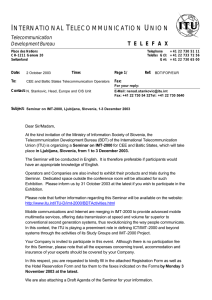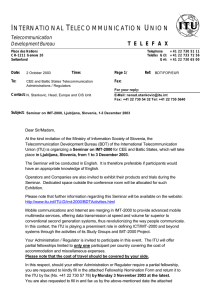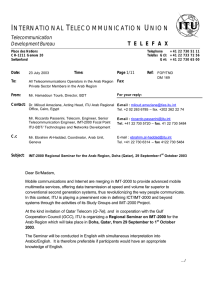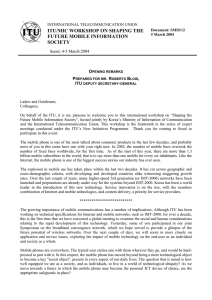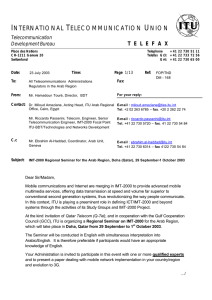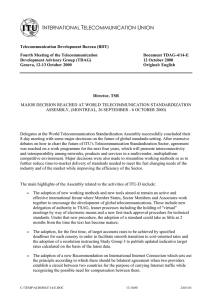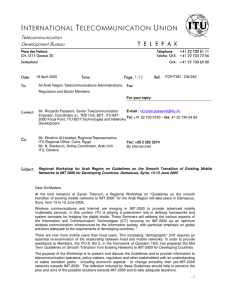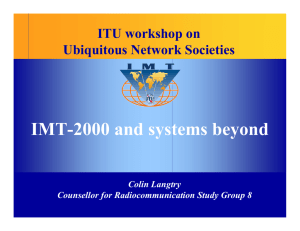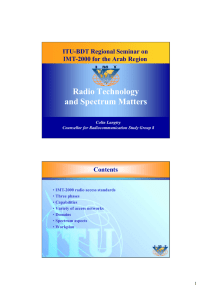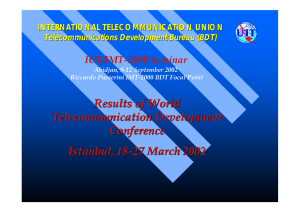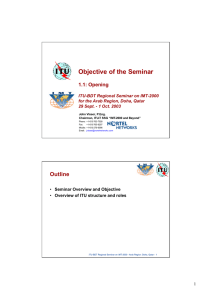I T U
advertisement
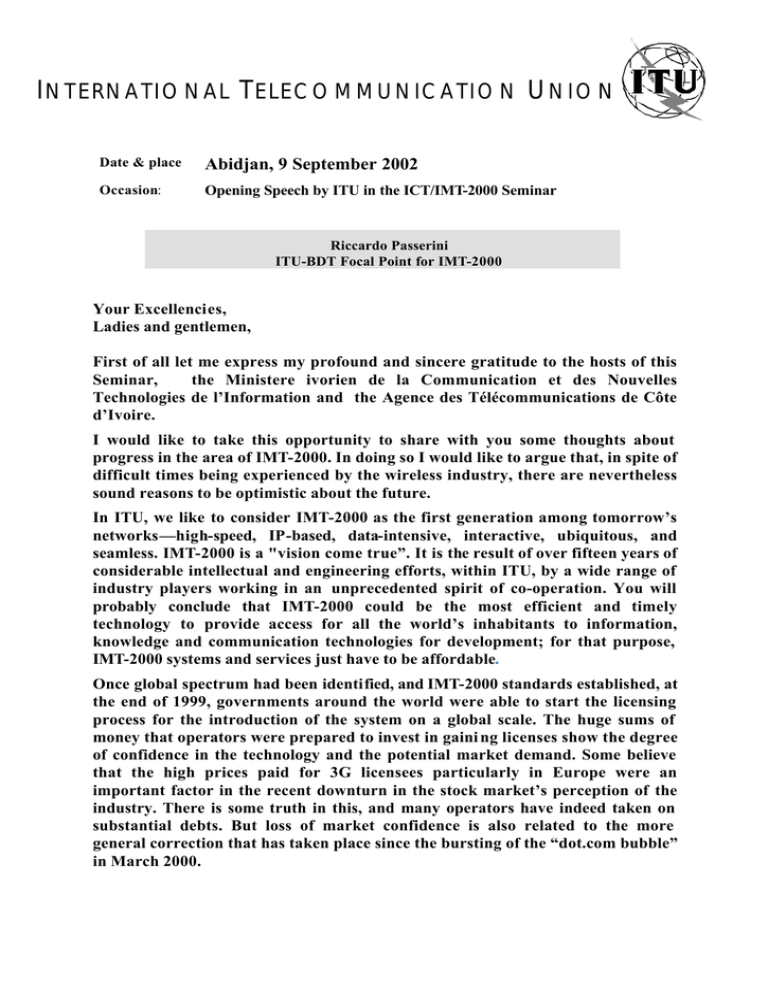
I NTERNATIONAL T ELECOMMUNICATION U NION Date & place Abidjan, 9 September 2002 Occasion: Opening Speech by ITU in the ICT/IMT-2000 Seminar Riccardo Passerini ITU-BDT Focal Point for IMT-2000 Your Excellencies, Ladies and gentlemen, First of all let me express my profound and sincere gratitude to the hosts of this Seminar, the Ministere ivorien de la Communication et des Nouvelles Technologies de l’Information and the Agence des Télécommunications de Côte d’Ivoire. I would like to take this opportunity to share with you some thoughts about progress in the area of IMT-2000. In doing so I would like to argue that, in spite of difficult times being experienced by the wireless industry, there are nevertheless sound reasons to be optimistic about the future. In ITU, we like to consider IMT-2000 as the first generation among tomorrow’s networks—high-speed, IP-based, data-intensive, interactive, ubiquitous, and seamless. IMT-2000 is a "vision come true”. It is the result of over fifteen years of considerable intellectual and engineering efforts, within ITU, by a wide range of industry players working in an unprecedented spirit of co-operation. You will probably conclude that IMT-2000 could be the most efficient and timely technology to provide access for all the world’s inhabitants to information, knowledge and communication technologies for development; for that purpose, IMT-2000 systems and services just have to be affordable. Once global spectrum had been identified, and IMT-2000 standards established, at the end of 1999, governments around the world were able to start the licensing process for the introduction of the system on a global scale. The huge sums of money that operators were prepared to invest in gaini ng licenses show the degree of confidence in the technology and the potential market demand. Some believe that the high prices paid for 3G licensees particularly in Europe were an important factor in the recent downturn in the stock market’s perception of the industry. There is some truth in this, and many operators have indeed taken on substantial debts. But loss of market confidence is also related to the more general correction that has taken place since the bursting of the “dot.com bubble” in March 2000. If the license valuations in Europe appeared to be high, it is probably because two out of every three European citizens already has a mobile phone. However, the true potential for IMT-2000 will rest especially in the developing and newly industrialize d nations where fewer than two people in every hundred have access to mobile communications. Furthermore, because IMT-2000 will open a new mobile gateway to the Internet, its potential as an access technology is even greater in those parts of the world, where Internet access is not available through traditional fixed-line networks. The results of the World Telecommunication Development Conference held late March in Istanbul gave a clear sign of how much our membership was aware of the potential IMT-2000 represents for your telecommunication development plans. The establishment of Question 18/2 to study strategies for migration of mobile networks to IMT-2000 is a milestone in ITU long haul cooperation with industry and regulators towards a successful deployment of 3 rd generation mobile communications. We are very encouraged by the strong signs of interest and motivation you have demonstrated so far with your active participation in the initial works of this group. Moreover, the Istanbul Action Plan for ITU-D adopted by WTDC-02, in its Program 2 (Technologies and Telecommunication/ICT Network Development) on Mobile Terrestrial Communications, states that “because of both the explosive growth of second-generation mobile systems, network development and migration to third-generation networks (IMT-2000), high priority will be accorded to mobile communications within this program”. Those of you that remember the Missing Link story will agree that it was primarily an infrastructure problem since it is about access to telephones lines. People do not need special training or a certain level of education to use a telephone so once the line is installed, the missing link problem has been solved. You will also agree that today's technologies, however, are far more complex and demanding and infrastructure is only part of the problem. Even a high speed Internet connection, like the one IMT-2000 can provide, cannot guarantee that people will be able to fully make use of the Internet. In other words, the complexity of the Internet forces us to distinguish between quantitative and qualitative barriers or factors. This seminar will be assisting you in addressing only one part of the problem, leaving to your governments and people to solve the most complex one. In conclusion, the realization of this seminar in this most promising region of the world is a demonstration of the great deal of importance the ITU gives to you and serious consideration we put on taking into account your requirements in shaping up the Global Wireless Information Society. Thank you.
